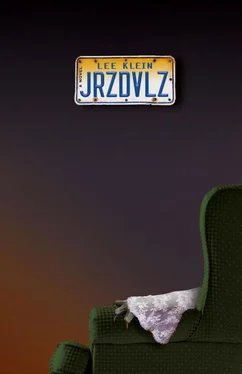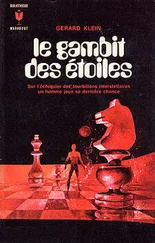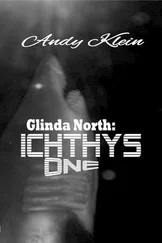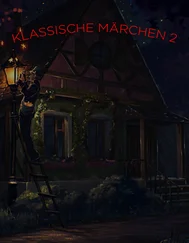Lee Klein - Jrzdvlz
Здесь есть возможность читать онлайн «Lee Klein - Jrzdvlz» весь текст электронной книги совершенно бесплатно (целиком полную версию без сокращений). В некоторых случаях можно слушать аудио, скачать через торрент в формате fb2 и присутствует краткое содержание. Город: Montclair, Год выпуска: 2017, ISBN: 2017, Издательство: Sagging Meniscus Press, Жанр: prose_magic, на английском языке. Описание произведения, (предисловие) а так же отзывы посетителей доступны на портале библиотеки ЛибКат.
- Название:Jrzdvlz
- Автор:
- Издательство:Sagging Meniscus Press
- Жанр:
- Год:2017
- Город:Montclair
- ISBN:978-1-944697-32-7
- Рейтинг книги:3 / 5. Голосов: 1
-
Избранное:Добавить в избранное
- Отзывы:
-
Ваша оценка:
- 60
- 1
- 2
- 3
- 4
- 5
Jrzdvlz: краткое содержание, описание и аннотация
Предлагаем к чтению аннотацию, описание, краткое содержание или предисловие (зависит от того, что написал сам автор книги «Jrzdvlz»). Если вы не нашли необходимую информацию о книге — напишите в комментариях, мы постараемся отыскать её.
Jrzdvlz — читать онлайн бесплатно полную книгу (весь текст) целиком
Ниже представлен текст книги, разбитый по страницам. Система сохранения места последней прочитанной страницы, позволяет с удобством читать онлайн бесплатно книгу «Jrzdvlz», без необходимости каждый раз заново искать на чём Вы остановились. Поставьте закладку, и сможете в любой момент перейти на страницу, на которой закончили чтение.
Интервал:
Закладка:
My friend Kirsch might be able to connect me with someone who knew someone who knew someone with influence at the EPA. He seemed to know everyone. His online profiles were linked to thousands. He’d lived everywhere, or almost everywhere, my source of insight about what it might be like in California, Texas, Chicago, Boston, even places that rarely crossed my mind like Austin, Missoula, Louisville, Oxford (Mississippi). He was like a journeyman infielder, playing forever at the university level, more apt to take another assistant professorship or a one-year contract on an emergency basis at a new school than settle down for long-time security. There would be time for long-term security. He taught composition classes, rhetoric classes, basic college-level literacy classes. The light infantry of the university system, he took on work no one really wanted. Recently, Kirsch returned to his hometown, having had enough of travels, and also to help ease his parents into old age.
People say that towns like ours are perfect for raising children. There’s room to grow, excellent schools, peace and quiet, long-established summer recreation leagues, a well-educated citizenry thanks to the university, and it’s less than an hour to New York and Philadelphia, and not much longer to beaches. But safety comes first. Young parents move from cities to communities like this one if they can afford it, or they scrimp to purchase stability and security. And yet, a certain percentage of a community anywhere, no matter how small, will be naturally cruel, and if they are a charismatic percentage of an elementary or junior high population, that number can double as they sway less willful members to attend to their business.
The day I met my friend Moss, a member of this cruel few had lured him to the woods with an invitation to smoke. Once letting him have more than his share of a joint, nefarious elements of the local youth population emerged. From behind thick bushes and the stray boulder from a long-retreated glacier, some played out-of-tune violins and others beat drums. It was an improvised funeral dirge, impassioned and slow, and to young David Moss’s ears, it was terrifying once it became clear that he was the focal point.
In the last twenty or so years of the 20th century, particularly in that area of New Jersey, the concept of woods meant more than it had fifty years before or now with all land accounted for, either developed or set aside as park or nature preserve. But for a while every wooded area seemed a perishable conduit to the past. Moss, much later on, told me about how he had grown up playing in a thin strip of woods between his housing development and a cornfield that became what’s now a well-established housing development of semi-expensive homes. At the time, Moss said, you could feel the housing development coming, like it was stirring alive, the ruins of some great society that needed to be excavated and restored. Everywhere you looked it was like this extraordinary archeological dig in central New Jersey. Instead of digging up and restoring a lost civilization, when the heavy machinery arrived, they excavated the future.
Moss admitted to spending a lot of time stoned in that strip of woods, sensing its possibilities, its perishable beauty. There was always a sense, like childhood, that all this must end. Now that he was more than twice the age he had been when I first met him, Moss associated any sort of wooded area with his youth. A walk in the woods let him remember when his imagination and perception were wide open to the world. A semblance of childhood returned in such places. It was not as sentimental as it was essential, knowing which vehicles carried one back through time.
For Moss, there was the moment when that paradise of youth was lost, and it was then, perhaps the lowest point in his life, that I met him: I had been walking through those woods, exploring the territory, not many years after I had relocated to the area. When not at the supermarket where I bagged groceries, I liked to walk, especially since I had spent so much time in flight, hovering, soaring, always at a remove from the dense particularity of the ground. Walking was a revelation, the streaming detail of feet over earth. There was so much territory to explore. All the sidewalks led into one another, ball fields, parks with paths through woods, and areas where it was easy to stray from those paths and cross streams and skirt the extensive backyards of estates on the outskirts of town. I sometimes found myself lost and by nightfall considered undressing to cover the remaining ground before midnight. Especially for the first few years, I tried to live a sane, socialized, domestic life as a young man. At times I was tempted to return to my bestial past and tour the areas I’d walked at high velocity, feasting here and there whenever able, but mostly I restrained myself. I changed my thinking so walking seemed more real, more natural, than flight.
On one of these walks, I came to a clearing in a strip of woods. Something unusual jutted from the earth. Some sort of hairy plant? A strange melon-shaped bonsai tree?
I approached from behind what could only be a human head. The dirt was loosely packed. It seemed that if a body were attached, all it needed was a quick shake of the limbs to free itself. Maybe the head had no body attached except a bit of neck and, for sport, buried itself as deeply as it could and waited for animals to approach before shouting them away when they came too close. Bones of deer and birds were not uncommonly found, broken egg shells, all mixed in with the illicit detritus of teenage hangouts. Deer and delinquents, both needed a place to go.
I stood in front of the head. The eyes opened. A voice played it cool.
“Wassup?”
“How’s it going?”
“Just hanging,” said the head.
A dun-haired boy, with clear pale skin and a long nose slanting to the left at the end, looked up at me. The angle made his eyes seem excessively white.
Late October. The scent and crunch of fallen leaves at early-evening dusk always made me want to attend a harvest ritual come the new moon. Addled by unprecedented amounts of high fructose corn syrup and progressively effective marijuana at the time, the approach of Halloween maybe was to blame for what had happened to the head.
“So what’s the plan?” I said.
“Haven’t thought much about it.”
Something was obviously not quite right with this head. Its eyes were no more than rosy red slits accentuated by an underlying puffiness and an expressive arch to the eyebrows, as though those woolly carets across his forehead were responsible for all his charms. Whoever had buried him surely possessed damning evidence against the head, numerous infractions of unofficial high school law. Or maybe this was an honor, an autumnal sacrifice among high-schoolers, a dedication to their gods who, if appeased, feted them with every imaginable intoxicant.
“Does this happen often?” I asked.
“Once a year. This year’s me.”
“A ritual?”
“A bitch when it’s you.”
I asked if he’d ever helped bury anyone. He said no but he’d heard of these burials.
I went to work on the poor boy’s self-esteem. “It’s an honor when they pick you,” I said. “Means you’re special.”
“Some honor,” he said. “A badge of dorkdom.”
“You want out?”
“Maybe in a minute.”
Moss wasn’t too difficult to get talking. I sat cross-legged and interviewed him. His responses were delivered in staccato phrases, as though he could only manage five words before losing his breath. Maybe the earth constricted his chest.
He told me about Marshall, the ringleader responsible for his current state. Years later when Moss suggested a Jersey Devil hunt in the Pine Barrens, his description of the area’s chief delinquent came to mind. Maybe our hunt for the Jersey Devil was a severely late attempt at revenge.
Читать дальшеИнтервал:
Закладка:
Похожие книги на «Jrzdvlz»
Представляем Вашему вниманию похожие книги на «Jrzdvlz» списком для выбора. Мы отобрали схожую по названию и смыслу литературу в надежде предоставить читателям больше вариантов отыскать новые, интересные, ещё непрочитанные произведения.
Обсуждение, отзывы о книге «Jrzdvlz» и просто собственные мнения читателей. Оставьте ваши комментарии, напишите, что Вы думаете о произведении, его смысле или главных героях. Укажите что конкретно понравилось, а что нет, и почему Вы так считаете.












